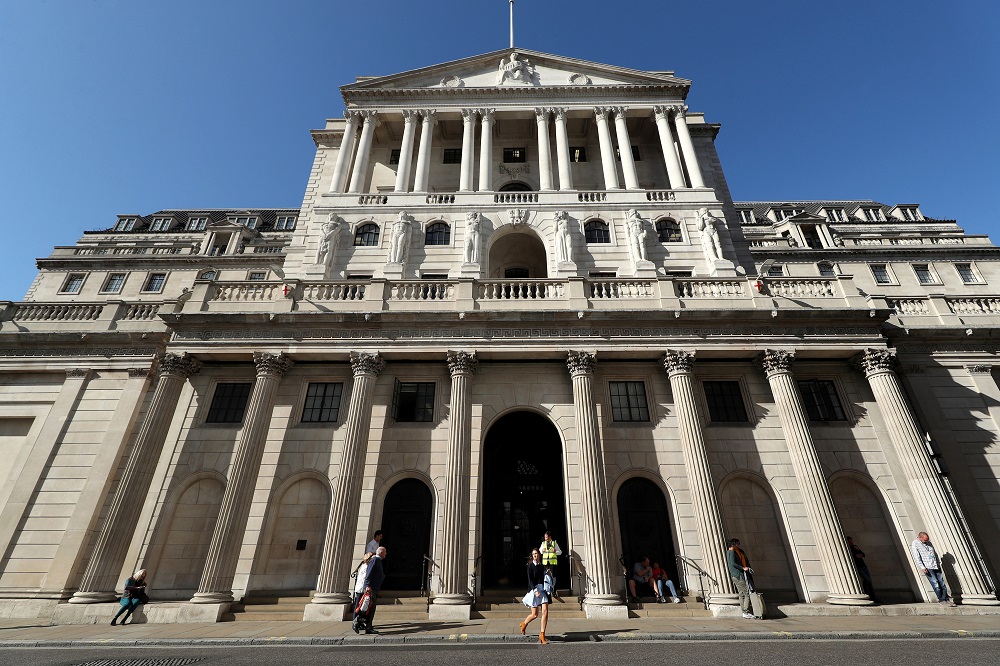UK interest rates could rise to 4.5% in face of stubborn inflation

The Bank of England is not ready to stop raising interest rates as soaring food prices has kept UK inflation elevated, economists have said.
UK Consumer Prices Inflation (CPI) remained firmly in double digits in March, squeezing household budgets and proving more stubborn than expected.
It means the Bank’s policymakers could be prompted to raise interest rates again, from the current rate of 4.25%, when they meet on Thursday.
Market expectations have risen over the past month and markets are now expecting rates to peak at either 4.75% or 5% this year.
It dashes previous hopes that the Bank could stop pushing through rate hikes earlier in the year, and means more pressure is set to be piled on already strained borrowers.
Economists at Oxford Economics said they are expecting another 0.25 percentage point increase on Thursday, taking the bank rate to 4.5%.
Stubbornly high
Chief UK economist Andrew Goodwin said: “Ahead of the May meeting, the Monetary Policy Committee (MPC) can justifiably argue that the criteria for tightening monetary policy further, that it set out in the March policy statement, have been met: the labour market is still tight and wage growth and services inflation remain stubbornly high.”
Official figures showed earnings grew by 5.9% in March, although wage growth is still being stripped out by soaring costs.
Vacancies fell slightly but remain at very high levels amid an ongoing shortage of workers, the Office for National Statistics (ONS) found.
It all impacts on the MPC’s interest rate decision because its role is to bring inflation back down to its 2% target.
Laith Khalaf, head of investment analysis at AJ Bell, said the inflationary picture is not “benign” in the UK.
“CPI still stands in double digits, which means that everyone is expecting a rate hike from the Bank of England at the forthcoming policy meeting.
“In stark contrast to the US, markets are then expecting one further rate hike, possibly two, to be pushed through.
“The UK’s headline inflation rate is running around twice that in the US, so it’s easy to see why we might have to swallow another few doses of monetary medicine.”
The US’s Federal Reserve decided on Wednesday to raise interest rates by 0.25 percentage points, but hinted it could be the last hike before rates start to come back down.
It follows a period of turmoil in the global banking sector with a number of US regional banks collapsing, leading to fears that high rates were piling pressure on banks in the world’s largest economy.
But British banks have brushed off concerns that they have been caught up in the turbulence, insisting their balance sheets are strong and resilient.
The European Central Bank (ECB) also opted to slow the pace of rate hikes, pushing through a 0.25 percentage point increase on Thursday.
But the ECB left the door open for further increases, with president Christine Lagarde saying “the inflation outlook continues to be too high for too long”.
Support our Nation today
For the price of a cup of coffee a month you can help us create an independent, not-for-profit, national news service for the people of Wales, by the people of Wales.







It’s a great opportunity for the wealthy to top up their grotesque fortunes without having to work.
Sadly, the Bank of England has not understood why the UK has this level of inflation. It was not caused by an excess of cash in the economy pushing up prices. The years of Austerity and public sector pay cuts have meant that wages have paid no part in the process. The key drivers have been the energy ‘shock’ caused by Russia’s illegal was on Ukraine, Boardroom Greed with excssive bonuses, margin enhancement by companies using inflation as a cover for increasing their profit margins and rental inflation plus the Bank of England’s own action of raising interest rates and… Read more »
Interest rates on cash deposits are much lower than the inflation rate, and will still be at 4.5%. Cash holders will still be losing money to inflation (which is a wealth tax by the currency issuing authority – B of E – the UK government.
Indeed, Frank, it is the wealthy who are driving inflation. They can afford food! I suspect that the largest contribution to inflation is coming from the luxury end of the market – cars, houses, investments. But I doubt we’ll see a BoE analysis that agrees with that anytime soon! Meanwhile the pressures on households, mortgage holders and small businesses continue without respite. And it looks as if a Labour government would continue these ill-advised policies. Settlement of the various pay demands on favourable terms ought to be the priority right now – they will have mostly positive multipliers and benefit… Read more »